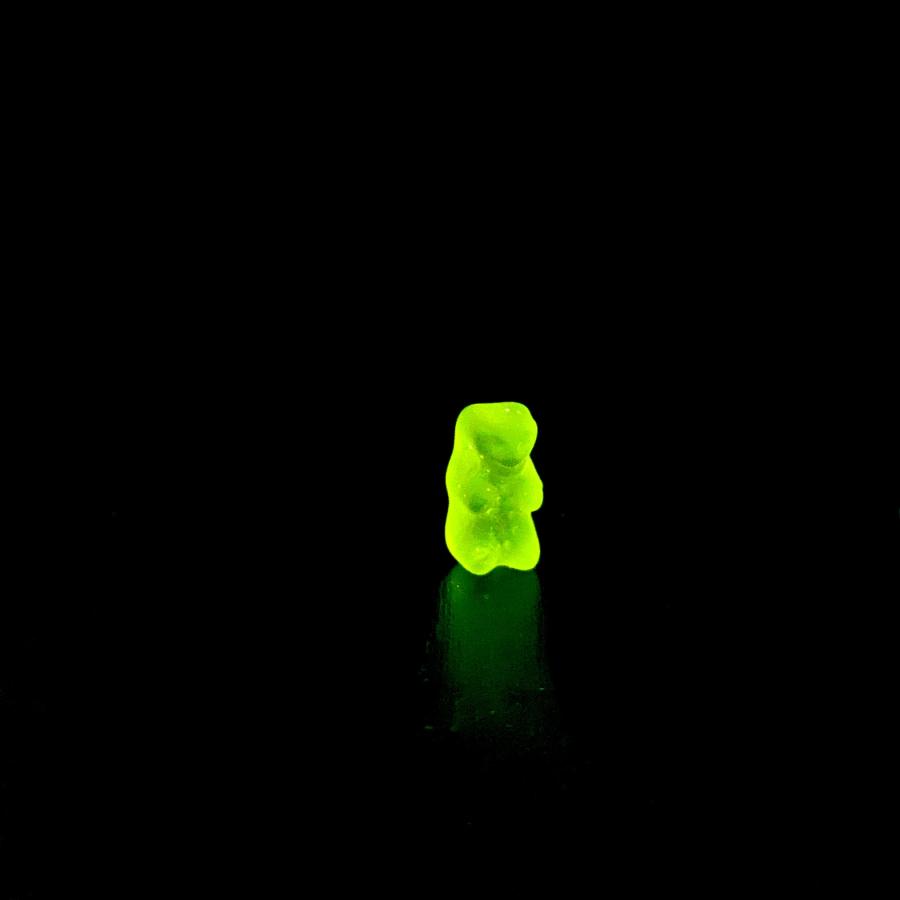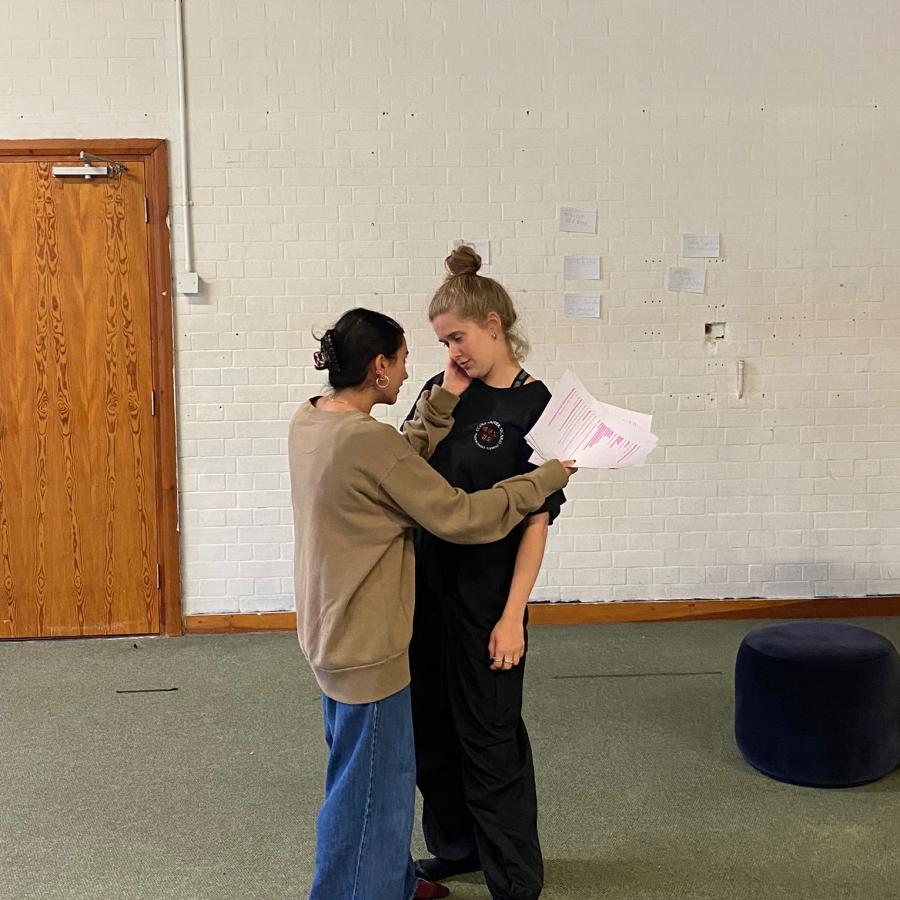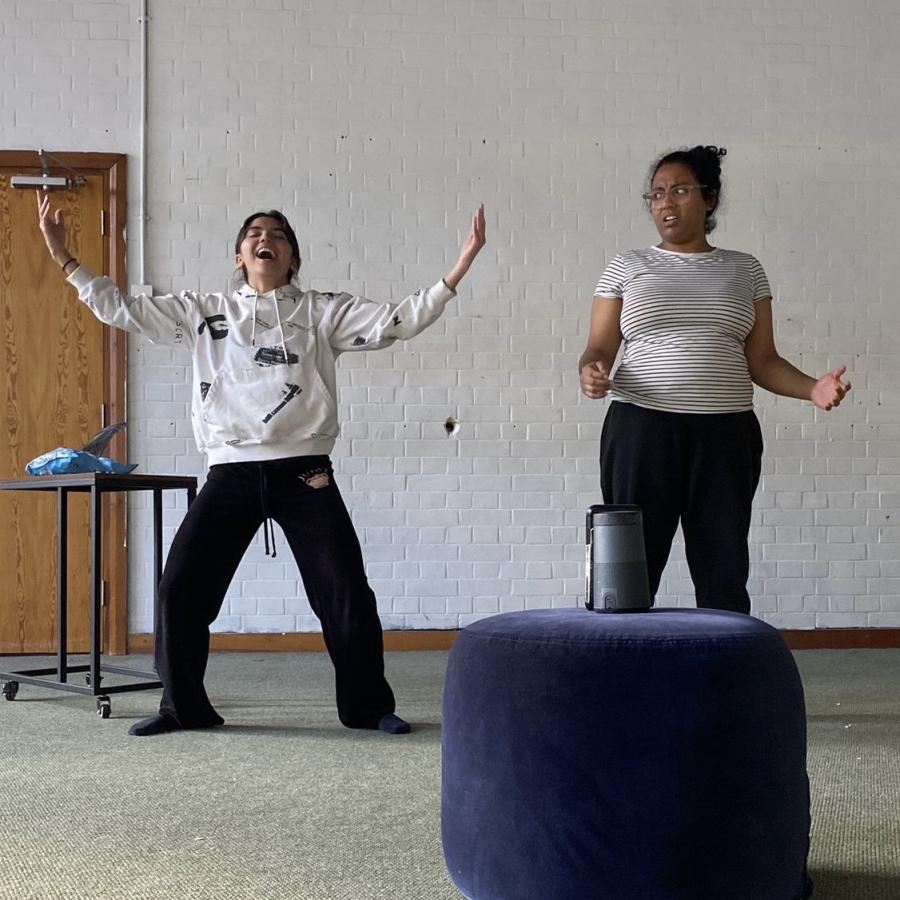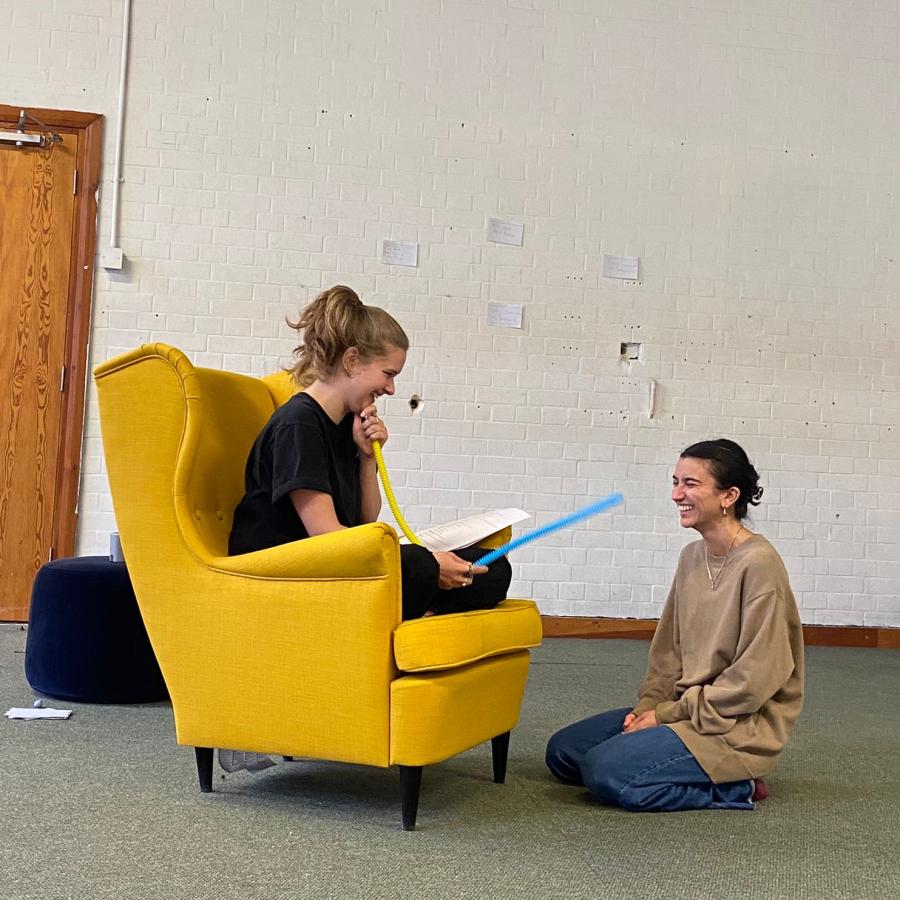Lydia Sabatini, co-creator of Dreambite Collective, examines the impact of post-covid capitalism on women's bodies and minds, and explores how this manifests in unusual and unruly desires in CONSUMED.
None of the three short plays that form CONSUMED either mentions or is explicitly set during the Covid pandemic, however that experience undoubtedly left its mark on each of them.
If you were working from home during Covid, if you were lucky enough to be able to, then like the characters in all our plays, you might have ended up feeling trapped in a domestic space. You might end up seeing and feeling that space differently. The previously familiar and even banal spaces around you might start to morph and merge with the stranger and darker spaces that dwell inside your mind…
Finding yourself trapped with your own thoughts inside a contained domestic space can change your sense of who you are, and of course the domestic space is a particularly fraught one for women. That’s why it felt right to foreground female subjectivity in each of these plays. Because being stuck in a kitchen doesn’t feel like a kitchen sink drama to the person actually stuck. It feels stranger and more unsettled.
One of the things I love about Clare Stenning’s play Gummy Gummy is that it literalises so beguilingly the tension of existing in your own highly entertaining and distracting mental universe and at the same time knowing that others are judging you without access to those same subjective experiences. Unlike the protagonists in the other two plays, Naomi, the protagonist of Gummy Gummy, has a foot in both her subjective world and the ‘objective’ world where her girlfriend is watching her, and the tension between those two worlds is intensely shaming, further entrapping her in this domestic space, to the extent where she’s almost sunken so far into her chair that she doesn’t feel like she can get up again. Because she fears that the person she has become inside this space is unlovable.
Another thing that shifted during the pandemic was our relationship to bodies: those of others and our own. The boundary between bodies during the lockdowns seemed much more rigid: we were separated from other bodies by walls, by laws, and yet simultaneously thinner. We worried about our bodies being invaded by tiny invisible particles. We worried that physical distance wasn’t enough to stop our bodies inflicting infection and even death on each other. Similarly, the protagonist of Katrina Bennett’s play Lucid experiences deep confusion and paranoia about her boundaries being invaded, and uncertainty as to whether there’s an invading, malevolent outside force at play or whether she herself, her own body and mind, is the source of these unnerving experiences.
The protagonist of You Are What You Eat, the play that I wrote, possesses a body under attack, in that it is vanishing, which we understand is linked deeply with the forces that shape our society, but the origin and nature of that attack, of that vanishing, remain elusive. I chose for it to remain elusive because I wanted her surreal experience to be able to connect with many of the very real social and psychological ways that women become estranged from their own bodies. There are many ways the current system of capitalist patriarchy objectifies and consumes women’s bodies. These undoubtedly have a profoundly corrupting effect on our minds. Think how the protagonist in Gummy Gummy and how her addiction stems from a sense of financial inadequacy and dependency.
Equally, there are many ways that people of all genders who suffer under patriarchy can reclaim their bodily autonomy. My unnamed Woman’s methods are admittedly quite extreme. And, indeed, it might seem contradictory for her to consume herself as a way of fighting against being consumed by the forces around her (I like and welcome this contradiction), however I would argue that the way in which she consumes herself doesn’t just re-produce the forces around her. Her action is not about monetising her body, is not about cutting it up into digestible images for other eyes to consume. It is sensual delight, wondrous exploration and a profound journey of self-knowledge. Somehow, and we don’t necessarily have to feel comfortable with it ourselves, but we do, I hope, come to understand that, for her, eating herself is a way of accessing love.
I think Lucid also gestures towards the ways in which a new generation are rebelling against the rigid categories that capitalism likes to sort their bodies and lives into. For me, and I am very much not the writer of that play, merely an enthusiastic audience member, so apologies to Katrina if this isn’t a good interpretation, but for me it speaks towards a wave of people questioning the hierarchies and boundaries between friendship, romantic love and sexual desire, and the way that young people living in flatshares can often form deeply meaningful communities amongst their friends, living and loving together, in a way that can form a bulwark against the iniquities and indignities of the outside world. What I love about Lucid is that it captures how profoundly disturbing and confusing the fluidity of these sorts of relationships can actually feel in a way that’s totally hilarious.
Dropping all the jargon and abstractions for a moment, fundamentally, all of the plays in CONSUMED are about women going a little bit mad in their homes. I hope trying to unlock some of the context behind the decisions we’ve made has been helpful, but most of all I hope if you come and see the play you feel a little less alone in the strange theatre of your own mind.
CONSUMED is part of the Autumn Season
Tue 1 - Sat 5 Oct at 9pm
Tickets £8 - £15 (+ booking fee)





